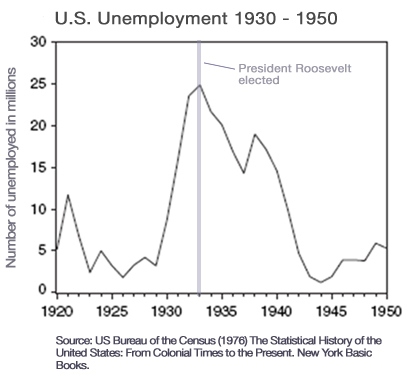What the Corporate naysayers and their tools don't want you to know or to remember......
...back to history. The fiscal stimulus of the 1930's was positive -- both in the US and the UK. It dramatically lowered unemployment after 1933.

Second, it is simply wrong to suggest that the fiscal stimulus 'will cripple us long-term.' It will not. The fiscal stimulus will pay for itself.
snip....
It works like this.Government invests in labor-intensive programs e.g. $40 billion in energy efficiency and renewable energy programs, including $2.9 billion to weatherize modest-income homes. $27 billion for highway and bridge construction and repair and $11.5 billion for mass transit and rail projects; $4.6 billion for the Army Corps of Engineers; $5 billion for public housing improvements; $6.4 billion for clean and drinking water projects.
The energy efficiency/transportation/public housing programs hire American workers - some highly skilled, some not so skilled. These programs also purchase materials - from factories. Some foreign, but mostly American.
Next, something called 'the multiplier' kicks in. It's the ABC of economic science and works like this.
The workers get pay checks. They use the income to pay taxes - direct to the US government. So immediately the government can use these tax revenues to fix the budget. Then workers purchase goods and services - boosting the economy. Companies hire more workers to deal with demand for materials from stimulus-sponsored programs. More employed workers equals more taxpayers.
Ever-rising tax revenues drop into the Treasury's coffers.
Because government spending is financed by bank money or credit, income increases. Eventually savings are generated to match the original stimulus expenditure - so there is no 'crowding out' by government. But savings too can find a way back to the US Treasury, because savers could end up investing in US Treasury bonds.
http://www.huffingtonpost.com/ann-pettifor/the-fiscal-stimulus-will_b_167119.html